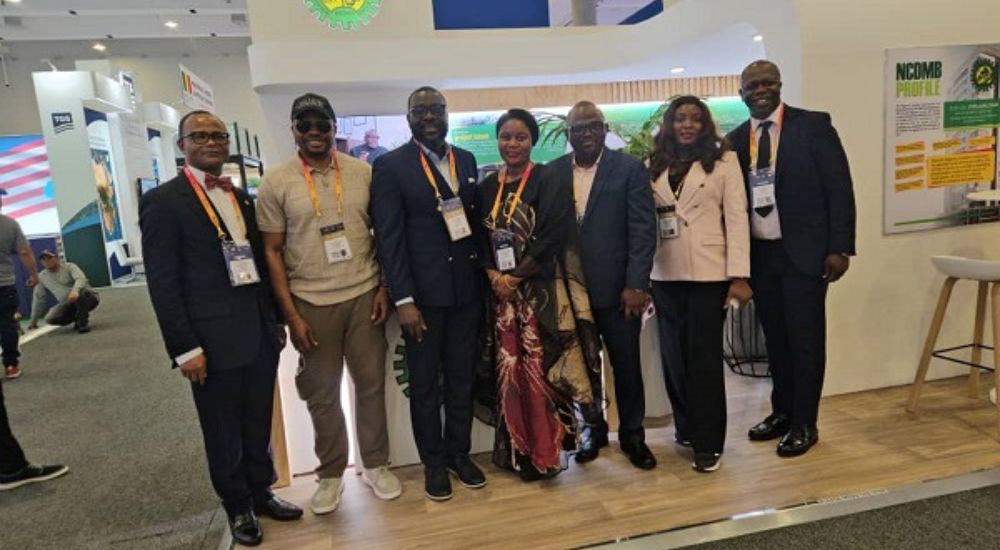NOGICD Act Not Weakened By Presidential Orders On Oil Sector – NCDMB
The three executive orders issued by President Bola Ahmed Tinubu on the oil and gas industry in March 2024 did not erode the relevance of the Nigerian Oil and Gas Industry Content Development (NOGICD) Act on the operations of the oil and gas industry, the Nigerian Content Development and Monitoring Board (NCDMB) has said.
This was one of the key messages from the Local Content Masterclass and panel discussion, held at the African Energy Week, which started in Cape Town, South Africa.
Advertisement
Discussions at the panel highlighted Nigeria’s local content milestones and processes, provided local lessons for other African oil and gas-producing countries, and clarified misconceptions, as well as positioned Nigeria’s oil and gas industry for investment.
The panellists included the Director of Capacity Building, Engr. Abayomi Bamidele, General Manager, Monitoring and Evaluation; Mr Silas Omomehin Ajimijaye, General Manager, Nigerian Content Development Fund (NCDF); Ms Fateemah Mohammed, General Manager, Nigerian Content Development Fund (NCDF); and the session was moderated by the General Manager of Corporate Communications, NCDMB, Dr Obinna Ezeobi.
Giving insight into the presidential directives, Bamidele observed that some oil and gas stakeholders grossly misinterpreted the presidential directives to mean that the NOGICD Act had been relegated or sidestepped, and they no longer need to comply with the provisions of the law.
“The special adviser to the president on energy had to clarify that the presidential directives did not set aside local content. They only mandated that existing capacities must be patronised and middlemen must be excluded from the contracting process.”
Advertisement
The three executive orders are the Presidential Directive on Local Content Compliance, the Presidential Directive on Reduction of Petroleum Sector Contracting Cost and Timelines, and the Presidential Directive on Oil and Gas Companies (Tax Incentives, Exemption, Remission, etc.).
Bamidele confirmed that NCDMB had streamlined its contracting strategies to align with the presidential directives and collapsed its touchpoints in the contract approval process from 9 to 5, thereby contributing to shortening the industry’s contracting cycle, reducing the cost of projects and catalysing new oil and gas projects from operating oil and gas companies.
He announced that qualified international service companies can now be awarded the Nigerian Content Equipment Certificates (NCEC) to facilitate their direct participation in deepwater operations in the Nigerian oil and gas industry, as provided in the NOGICD Act.
This policy will attract investments into the sector and is consistent with the presidential directives, he explained.
On Board’s strategy for capacity development for new oil and gas projects, he said, plans are afoot to conduct training in skill areas that are in high demand in the sector.
Advertisement
He underlined the need to always streamline capacity-building initiatives with requirements and changing dynamics in the industry.
He said the Board is also committed to developing critical infrastructure such as the Brass Island Shipyard with the support of the NLNG, as well as completing and operationalising the Nigerian Oil and Gas Parks at Odukpani, Cross River State, and Emeyal-1 in Bayelsa State, he hinted.
Counselling sister African countries, Bamidele noted that local content and capacity-building strategies must be country-specific, and policymakers must understand the mindset and skill sets of their nationals.
He further advised that local content policies and capacity-building models must be relevant and applicable to the host country’s technological, educational, and manpower capacities.

